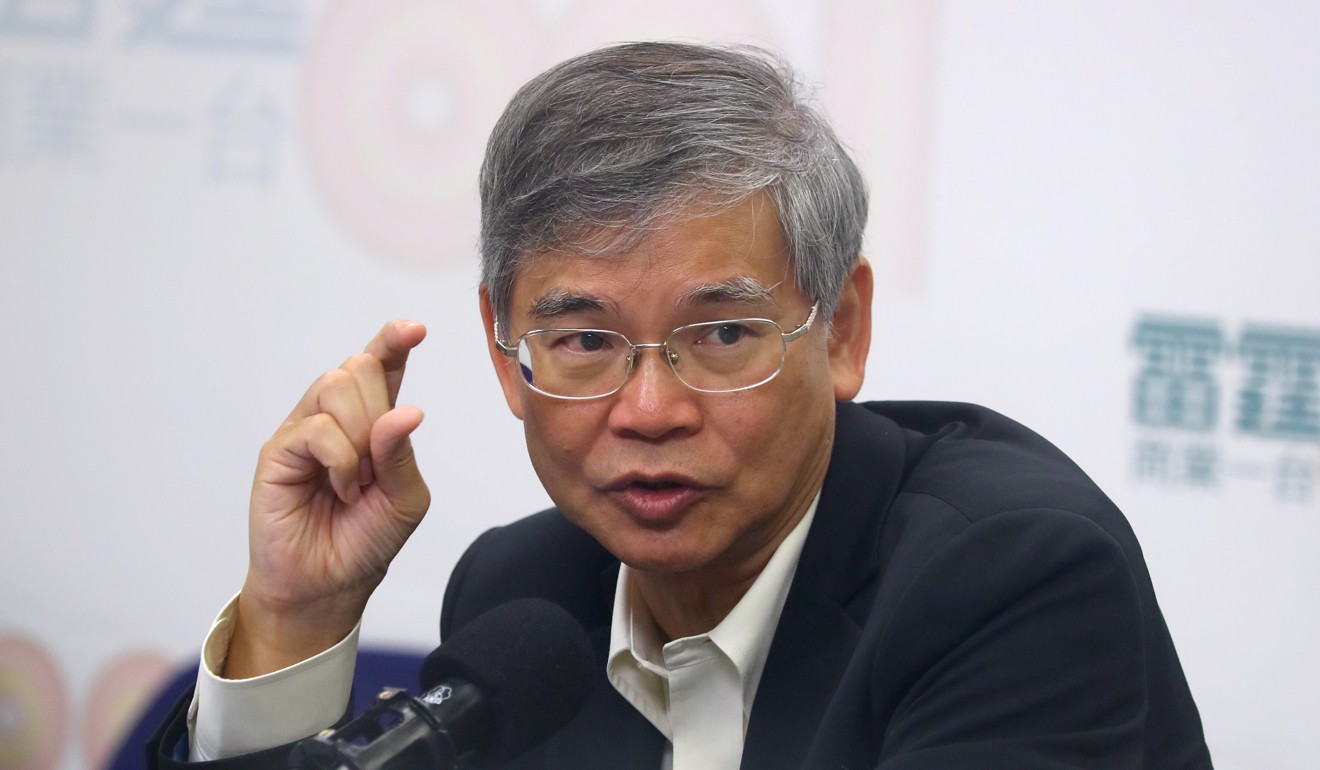
If no ‘one-way’ permit scheme for migrants from mainland China, Hong Kong would have had 700,000 fewer workers over 20 years, labour chief Law Chi-kwong says
- Minister also dismisses business sector’s ‘scaremongering’ over government plan to scrap MPF offsetting mechanism
Hong Kong would have had 700,000 fewer workers over the past 20 years but for a scheme that allowed up to 150 people a day from mainland China to settle in the city, the labour minister said on Sunday.
The secretary for labour and welfare hit out at government critics in an article titled “Exaggeration out of intention or imagination” posted on his official blog on Sunday.

In his piece, Law defended the “one-way permit” scheme, saying it had provided 400,000 workers over the past two decades. And welcoming in the mainland spouses of Hong Kong residents had added another 300,000 workers.
“With a shortfall of 700,000 working population, one can tell whether the effects on Hong Kong’s society and economy are good or bad,” Law wrote.
Created in the 1980s to enable orderly family reunification, the scheme allows up to 150 mainlanders each day to move to Hong Kong. But mainland authorities administer the scheme and Hong Kong has no say in who is admitted.
Small firms raging over business groups’ MPF offsetting ‘betrayal’
Hong Kong’s jobless rate currently stands at 2.8 per cent, a 20-year low. The business sector has called for more foreign workers to be imported.
The localist NeoDemocrats party dismissed Law’s arguments as “misleading”. It said it would not be “a good thing” for a compact city such as Hong Kong to have too many people.
“Hong Kong is already overloaded with a population of 7 million,” it said in a statement. “It would be a good thing if Hong Kong had over 700,000 fewer people.”

The party’s Roy Tam Hoi-pong added: “A bigger working population does not necessarily mean higher productivity. In a technology-based economy, the application of modern technology can actually decrease the need for human labour.”
Meanwhile, Law also touted the government’s plan to scrap the offsetting arrangement under the MPF scheme, which allows bosses to dip into workers’ retirement savings to make long service and severance payments.
He criticised as “ridiculous” the business sector’s claims that firms could face extra costs of HK$840 billion in the next 25 years despite a revised government plan that would offer bosses more generous subsidies to soften the blow of the mechanism being scrapped.
Number of mainlanders moving to Hong Kong drops by almost 15,000
Law said the bosses’ analysis was based on “impossible assumptions” and that their claim was only a scaremongering tactic.
“[The HK$840 billion figure] would only be possible if none of the city’s three million employees quit their jobs over the next 25 years, none of them got fired in the first five years, and all those who quit their jobs after five years were fired by their bosses, ” Law wrote.
He said it would be “overly creative” for the bosses to have “imagined” such a scenario, or they simply did not know how their estimate was reached.
“If their goal is not about analysing [the situation], but only about achieving a certain objective, that is another story.”

The offsetting mechanism has allowed companies to use their portion of contributions towards employees’ MPF accounts to cover long-service and severance payments.
Unions complain that workers have little left in their pension funds after the offsetting and demand it be scrapped.
Legislator Felix Chung Kwok-pan, of the pro-business Liberal Party, argued: “It is not about whether there will be mass sackings. It is about extra costs faced by businesses.”

